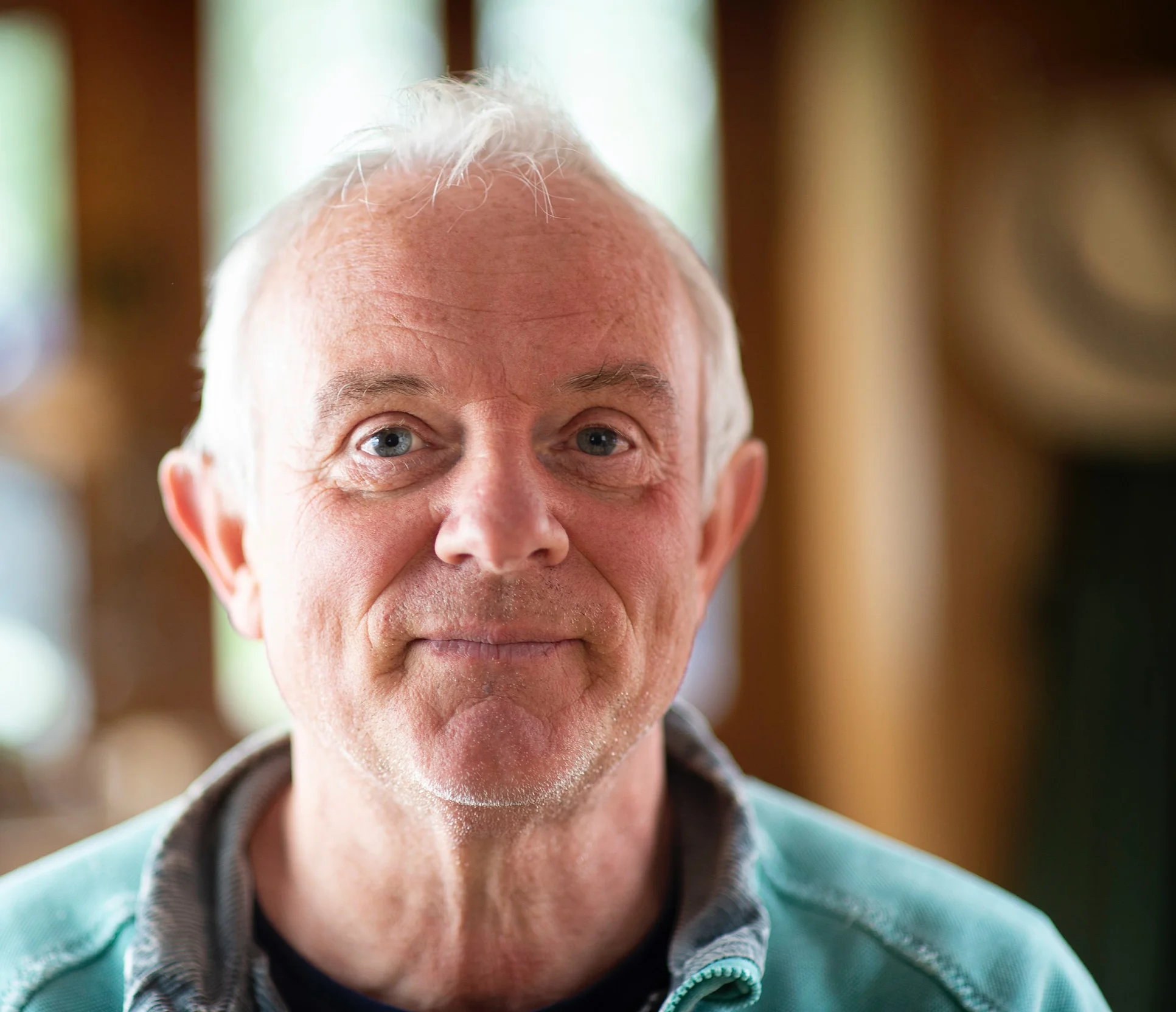David Tinker is the Development Director of ProReal, a virtual platform which enables users to visually describe their worlds in a way that is immersive, safe and secure.
His clients enter a virtual landscape and add avatars and props to create representations of real-world scenarios. It’s a compelling, fascinating experience that probes deeply into the nature of our experiences and how we interpret them.
David’s entrepreneurial career followed life as a military helicopter pilot. He taught leadership in the Army before transferring his skills to consultancy and coaching in the international corporate environment. The original ProReal concept grew out of David’s training in coaching, therapy, sociodrama, and storytelling.
We’ve spoken regularly via Skype as he works aboard his canal boat. It’s an idyllic setting; every call starts with a story of a glorious sunrise, a mention of the family of ducks by his window or the peace and tranquility of the waterside. The space seems to fuel him as he arrives, immediately present in our conversations, bringing his customary sense of complexity, creativity and humour in the world with immediacy and clarity.
I opened up the possibility of an image that would express his view of how he sees things:
S: Where would we shoot it? Where would we do it?
D: Oh… maybe I’m on the paddle board or maybe I’m in the river somewhere, there’s something about the flow of a river and there’s something about the comedy… I’ll tell you, I was once… I’ve got a 2CV, a Deux Chevaux, and I’ve renovated the Deux Cheveaux. But I broke down once on this really busy main road by this roundabout and I had an hour or so to wait for the AA. I happened to have my tuba in the back and I sat on the wing of this 2CV with my red fedora on and I was practicing. It was a beautiful day, practicing my tuba and I couldn’t help but think there must be so many car drivers that went back home that night… “You’ll never guess what I saw today… This really weird bloke with a fedora on, sat on the side of a 2CV playing the tuba.”
In the event, the tuba didn’t make it into David’s Photo-Dialogue image but Pete did. He had been resting in a corner of the canal boat and it seemed unkind to leave him out of the fun. David thought that Pete should drive the 2CV; as a provocation for any of us who assume we are in control of our destiny.
David Tinker: Nikon D4
S: I’m curious, is that an intentional provocation on your part or… ? Do you deliberately shake things up, do you disrupt, or…?
D: Oh, I’ll provoke. I’ll shake things up. I’ll … and I know, I mean, just like my father, I know that’s what he did. He was very provocative and he was, underneath that, very angry, but also, as a theatre director, he always had this way of seeing what was behind something in the person, in what was presented, in terms of a presenting issue. He was always working with, “What’s the possibility of what’s behind…?” In the same way in which, when I went to see the Picasso exhibition the other day, I just loved… he was saying the unsayable. He was describing the indescribable in words and he would put in into pictures so amazingly well that we get, as you would understand… we get it in an art form.
S: I’m always fascinated by this idea of ‘what’s behind’, or emergent, or lying somewhere in our collective consciousness. Those moments when we can’t describe something but then someone articulates it beautifully. That feels like a real artistic talent to me; as though we can divine our way to some kind of truth.
D: So I’ve got truth-seeking going on, not so much in a belligerent way, but in this kind of nudging.. “What’s a real truth here, that we might be sitting on or trying to avoid?” And I do get… erm… struck by our limitations. There’s a naïve inquiry; how do we set this up for ourselves, you know, we are setting ourselves up for extinction and why do we do that? So I’ve got some of those questions going on. And part of it is, I don’t want to tip-toe through life to make it safely to death; I really don’t want to have a nice life.
S:Where does that kind of scratchiness come from, do you think? You referenced your father, how does that… I’m interested in what’s the real genesis of that…? How do you see? You’re responding to what?
D: Mmm… Let me start with my business first. I see a way in which … for me a lot of this is about doing something useful. I can’t see the point of being on this planet and just being here as a passenger. There’s doing something useful and, for me, like, there’s a resolution to be had. The same in any film, the same in any story or symphony, we just want to resolve this particular part of the melody and so I’m looking… ‘Where’s the resolution here?’ For me, in my life, that would give some kind of closure. So I’d like to go to the resolution of this bit and certainly, my work part, before I get to retirement. And I always remember doing some work in my clowning training of mirroring someone, and trying to get the mirroring absolutely right - and even if a hand would move slightly we would move and it was so important, being aware of that and, so the resolution is in getting that mirroring going, so we’re trying to mirror what’s going on in the market and where the needs are and how that’s shifting and how are we adapting to what’s going on … erm… seems to be really important for us. So, yes, so phases of disruption and then resolution in the same way in which I can hear a beautiful minor into a major key or something like that.
S: So did you inherit any of the anger? I’m thinking of a friend who reminded me of the song lyric, “Anger is an energy!”
D: I’ve got a tinge of some anger that comes through, but I can connect with that in a really positive way. Now I can connect with it in an intelligent way that I don’t think I always have. I think I’ve learned how to engage with it in an intelligent way. And a kind of intolerance of ‘nice’ – it’s just that nice doesn’t make anything happen – and yet it’s difficult because we might have something about ‘adequate’. What’s wrong with having an adequate life? And yet that’s so hard for us. You know, I don’t want to have an adequate life for fuck’s sake! I want to have a brilliant life! And yet I’ll be really disappointed. What’s wrong with having an adequate life?
S: It really doesn't sound like you’ll find resolution there…?
D: My sons keep threatening to put on my gravestone, “Here lies a really nice man who had a nice life.” I used to have a jar in our kitchen when they were going to school, when they were younger, and every time you used the word ‘nice’ you put a pound in the jar…

